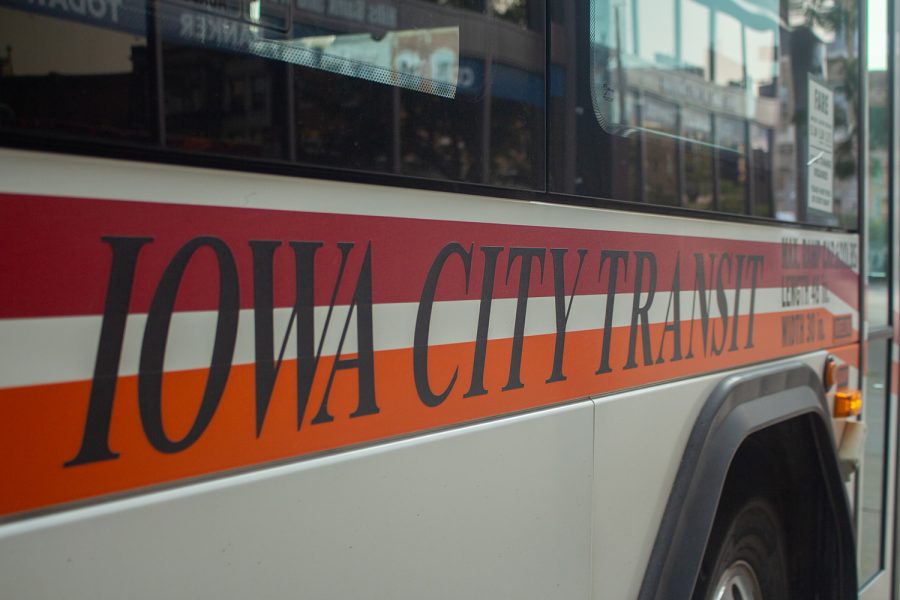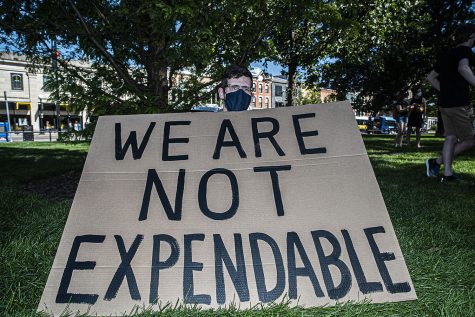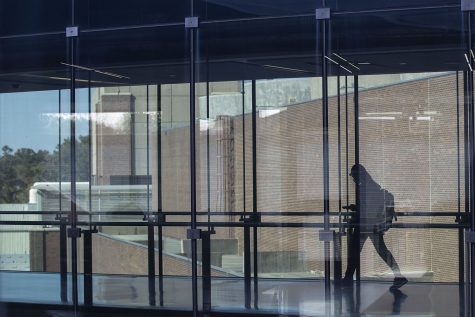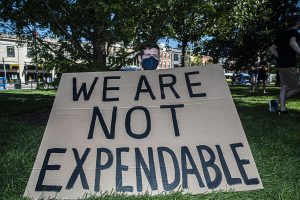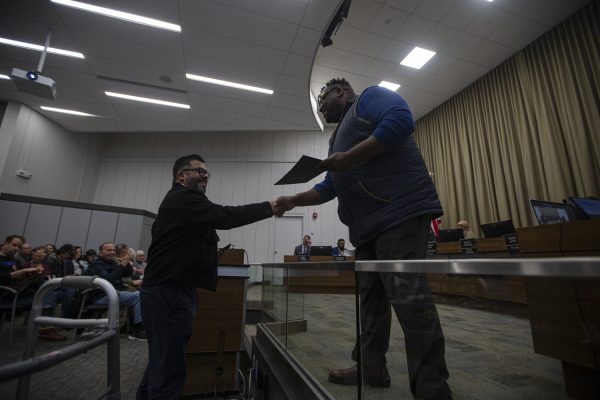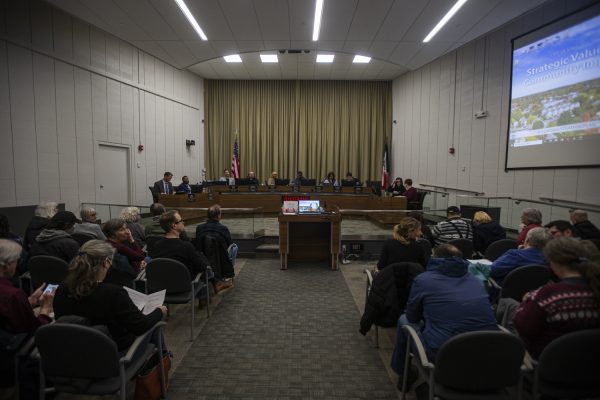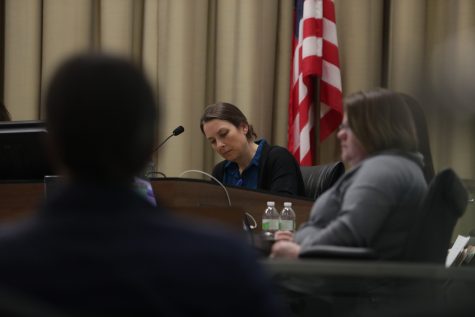Iowa City to consider eliminating fares for public transit
Changes to transit systems could mean city riders won’t need to pay for bus services.
Iowa City Transit bus as seen on Sept. 21.
October 20, 2020
Various changes could be coming to Iowa City’s public transit system, including an elimination of bus fares, extension of weeknight bus services to midnight, and implementation of Sunday service as a part of the city’s goal to double public transit ridership in a decade.
Iowa City City Council is weighing these recommendations, which were put forth after the conclusion of the Iowa City Area Transit Study that began in fall 2019 was recently finalized.
Director of Transportation Services Darian L. Nagle-Gamm said the study’s evaluation of potentially eliminating bus fares altogether was particularly exciting, and that the removal of these fares in Iowa City could be an amazing improvement for the community in terms of transit accessibility.
“It could be revolutionary in terms of removing some of those barriers as to why people maybe don’t choose transit or they don’t think of transit first, because you have to think of a fare,” Nagle-Gamm said. “It has the potential to make things a lot simpler for people.”
The study also looked at extending weeknight service and adding Sunday service, which Nagle-Gamm said were staple requests by the public.
RELATED: Transportation committee advocates for longer bus hours, universal bus passes
The study splits objectives into two categories: what the city could do to improve public transit with existing funding, and what the city could do to improve transit with additional funding.
According to the study, the addition of Sunday, late-night weekday, and fare-free transit services falls into the second category, and requires additional funding to be implemented.
The study was initially introduced to the Iowa City City Council in its work session on Oct. 6, and Nagle-Gamm said Transportation Services was waiting on additional city-council direction before continuing with any official transit changes.
City Councilor Pauline Taylor said the primary challenge associated with removing bus fares and extending hours would be finding ways of making up for lost revenue.
She added that she thinks improving ridership would be a worthwhile justification for the changes.
“The bottom line is always money,” Taylor said. “I think we can work things out, we would just have to work something out as far as balancing that out then, because down the line I think that would be a very good option.”
The study quotes a one-time capital cost of $1 to 2 million, with an additional annual operating cost of $1.32 to 1.4 million under a fare-free system for the fixed-route bus system, with several hundred-thousand dollars when paratransit for disabled residents is included.
City Councilor Mazahir Salih said she thought cutting fares completely was a good idea, but a more important change is making sure bus services run late at night and on Sundays to support low-income residents who rely on those systems to get to work.
She said the city would ideally be able to incorporate all three — Sunday service, extended night service, and an elimination of bus fares.
“It is a good idea to get rid of the fare, but if that’s going to be affecting availability for bus services for nights and weekends, I’d rather have the fare but having buses on the Sunday and the night shift,” Salih said. “Low-income people need transportation to go to their second shift, and we need service on Sunday.”



